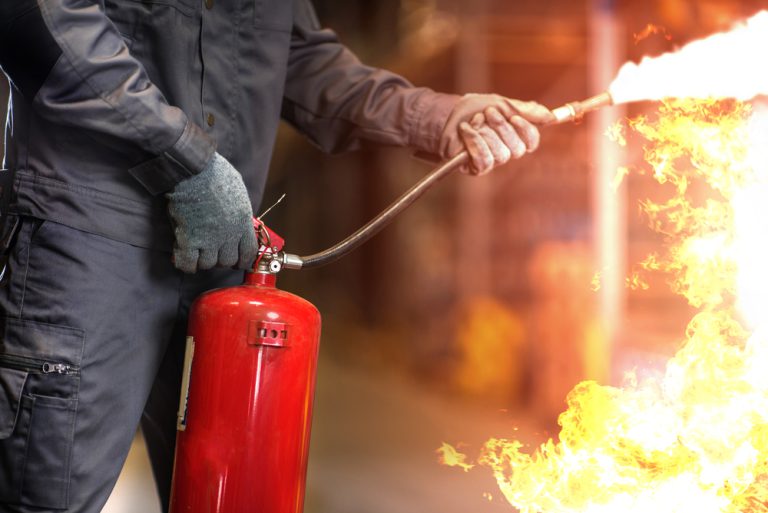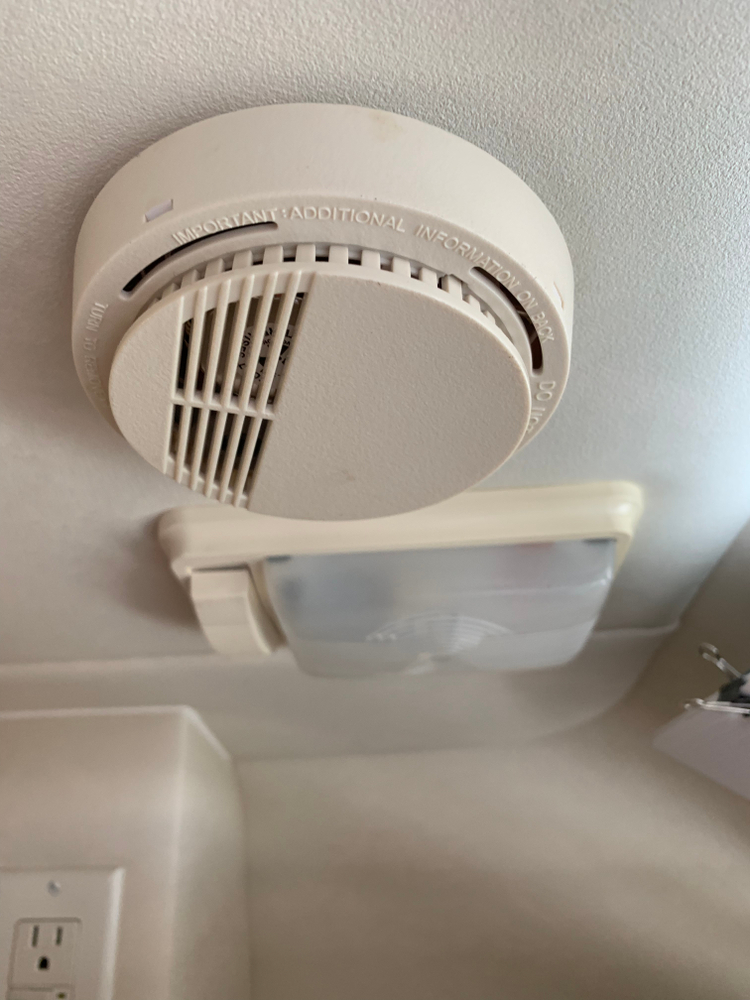
When you’re planning your upcoming RV vacation, preparing for an emergency might be the last thing on your mind. Between daydreaming about (and routing) your itinerary with your road atlas and ensuring your Passport America membership is valid and up-to-date, there are more pressing issues at hand… and they’re way less of a downer.
But if something does go wrong, having made a smart plan ahead of time could save your life, not to mention the lives of your family and other campers in the area. And unfortunately, fires are a real risk in the world of RV camping. Although statistics vary, many agencies and organizations report that thousands of RV fires occur annually, many leaving significant property damage or even injuries and death in their wake.
Some of the most treacherous RV fire hazards are easily overlooked. Electrical shorts and faulty wiring can spark fires when you least expect it, even if your systems are powered down — and most RVs have lots of wiring to worry about. What’s worse, not all smoke alarms are designed to detect these smoldering, flame-free conflagrations.
But by learning about the causes of RV and travel trailer fires, you can do your best to mitigate those risks ahead of time. You can also prepare yourself to handle the situation effectively if a fire does break out in your rig.
Here’s what you need to know about RV fire safety to keep your family safe on your next camping trip.
What Causes RV Fires?
As mentioned above, RV fires are frequently caused by electrical shorts or wiring system problems. That means they can start in any part of your rig with electrical components — your slide-out motor, your refrigerator, your generator and your A/C are prime culprits.
What’s more, an RV electrical fire of this type can occur even when those systems are powered down and not working, including when you’re asleep or away from your trailer. And these types of fires create a slow-burning smolder as opposed to a giant flaming mess, which means that certain, older smoke detectors may not sound in their presence.

RV Smoke Detector
So, how can you avoid an RV electrical fire?
While there’s no way to completely negate your risk, it’s important to equip your rig with a smoke alarm that has both ionization and photoelectric smoke sensors, which can alert you to an electrical fire in time to smother it and get to safety. First Alert’s SA3210 model makes for a good RV fire alarm, as it has both types of sensors and also comes with a hassle-free, long-life 10-year lithium battery.
It’s also important to ensure all components of your RV with electrical wiring are kept in good repair and serviced on a regular basis, which can help you discover wiring problems before they result in a fire.
There are other fire risks in your motorhome as well, especially when you’re underway. Some of these include flat tires and dry wheel bearings, as well as engine fires. These are especially common in large Class A diesel pushers, whose engine compartments should be cleaned periodically to minimize the hazard.
You can also install a fire suppression system in your engine, which will automatically activate if the compartment reaches a certain temperature threshold. It can extinguish a fire that’s already started and help keep your engine fire from spreading to — and damaging — other parts of your motorhome.
Motorhome Fire
Unfortunately, even when we take as many precautions as possible, accidents and emergencies do happen. That’s why it’s also important to be ready to tackle an RV fire if one should arise.
Your RV probably came equipped with a fire extinguisher, but when’s the last time you checked to see that it was up-to-date and ready to go? In fact, do you even remember where it lives in your rig?
Fire extinguishers need to be replaced and serviced periodically, and are also sometimes subject to manufacturer recalls. All of these factors could leave you empty-handed just at the moment when help is most needed.
So before your next camping trip, make sure your RV fire extinguisher is up to date, ready to go, and in an easily-accessible location. In fact, you may want to invest in a second or third so you’ll have quick access to one no matter where in your rig the fire breaks out.
If you do purchase an auxiliary fire extinguisher, make sure it’s a B/C version. These types of fire extinguishers utilize a dry chemical that can squelch electrical and oil fires — the ones most commonly encountered by RVers — as opposed to A-type fire extinguishers which are only for ordinary combustibles like paper.
Fire Safety
Preparing for and learning about the causes of RV fires is an important step toward ensuring RV fire safety, no matter when and where you’re camping. To help ensure you’re as safe as possible, here’s a quick checklist of fire safety preparations to make before you hit the road for your next adventure.
1. Ensure that your rig’s electrical components and systems are serviced and maintained at regular intervals, including the engine. Consider installing a fire suppression system to reduce the risk of engine fires.
2. Equip your RV with working fire safety technology, including a dual-sensor smoke alarm and one or more up-to-date Class B/C fire extinguishers.
3. Keep an easy-to-grab emergency kit bag on board including a fire-proof carrying case for important documents and valuables, as well as survival gear like thermal blankets and basic medical supplies.
4. Ensure that all members of the camping party know where all your RV’s emergency exit points are and how to use them, including windows. Also ensure that all campers know the location of the fire extinguisher and how to operate it.
5. Finally, always practice basic, common-sense fire safety rules, such as avoiding leaving an open flame (like your stove or a candle) unattended.
By informing and equipping yourself for the worst, you’ll be better prepared to enjoy what may just be the best vacation you’ve ever had in your RV.
This post may contain affiliate links.

